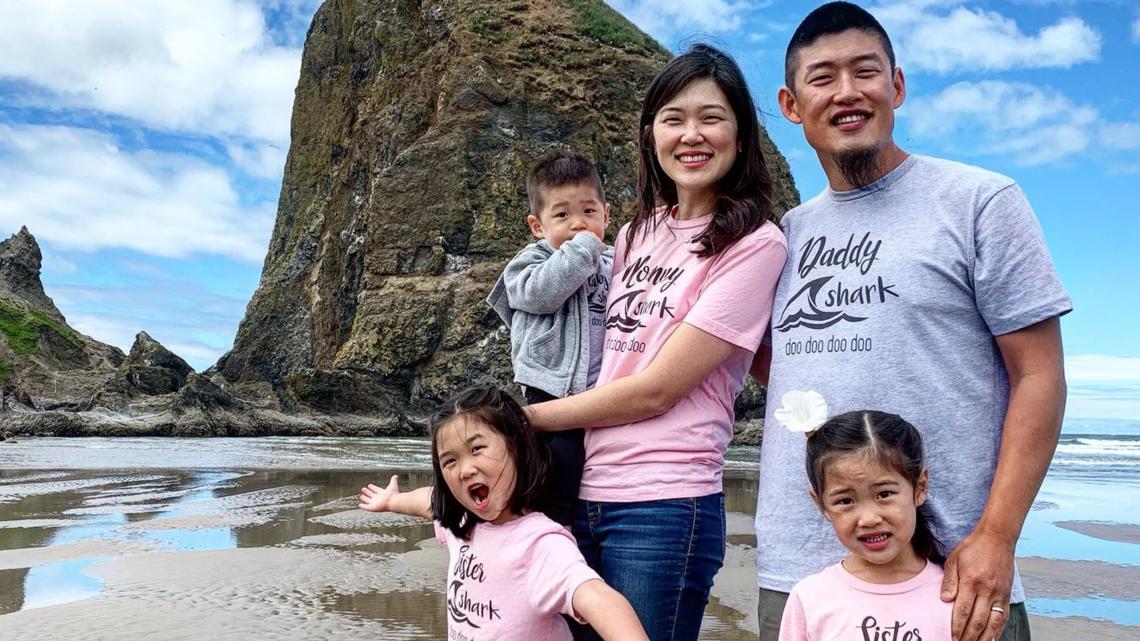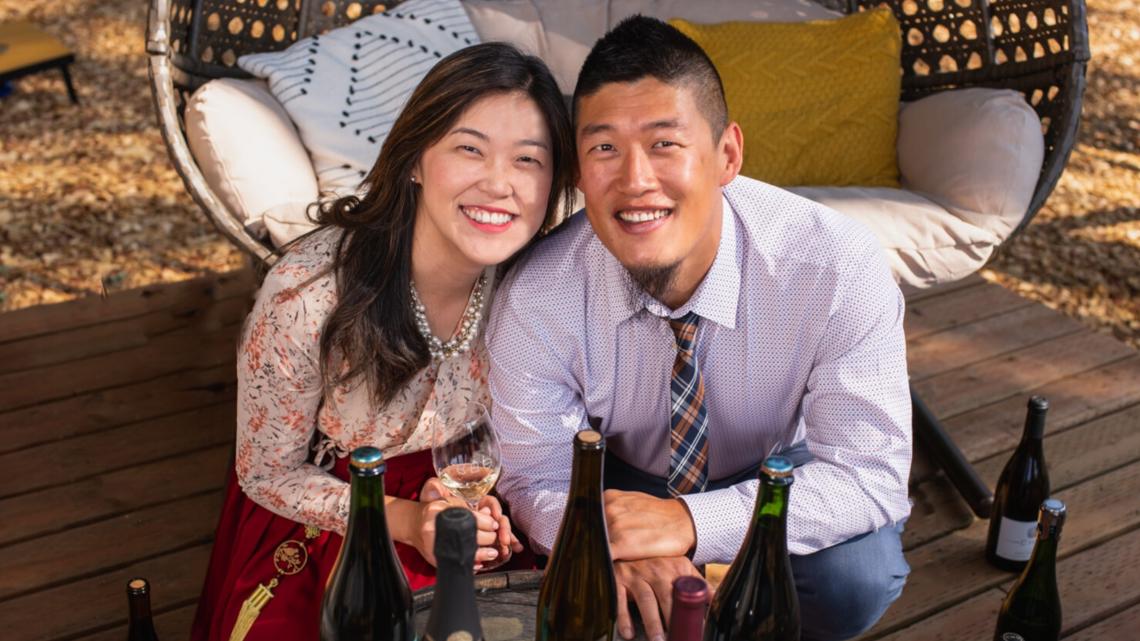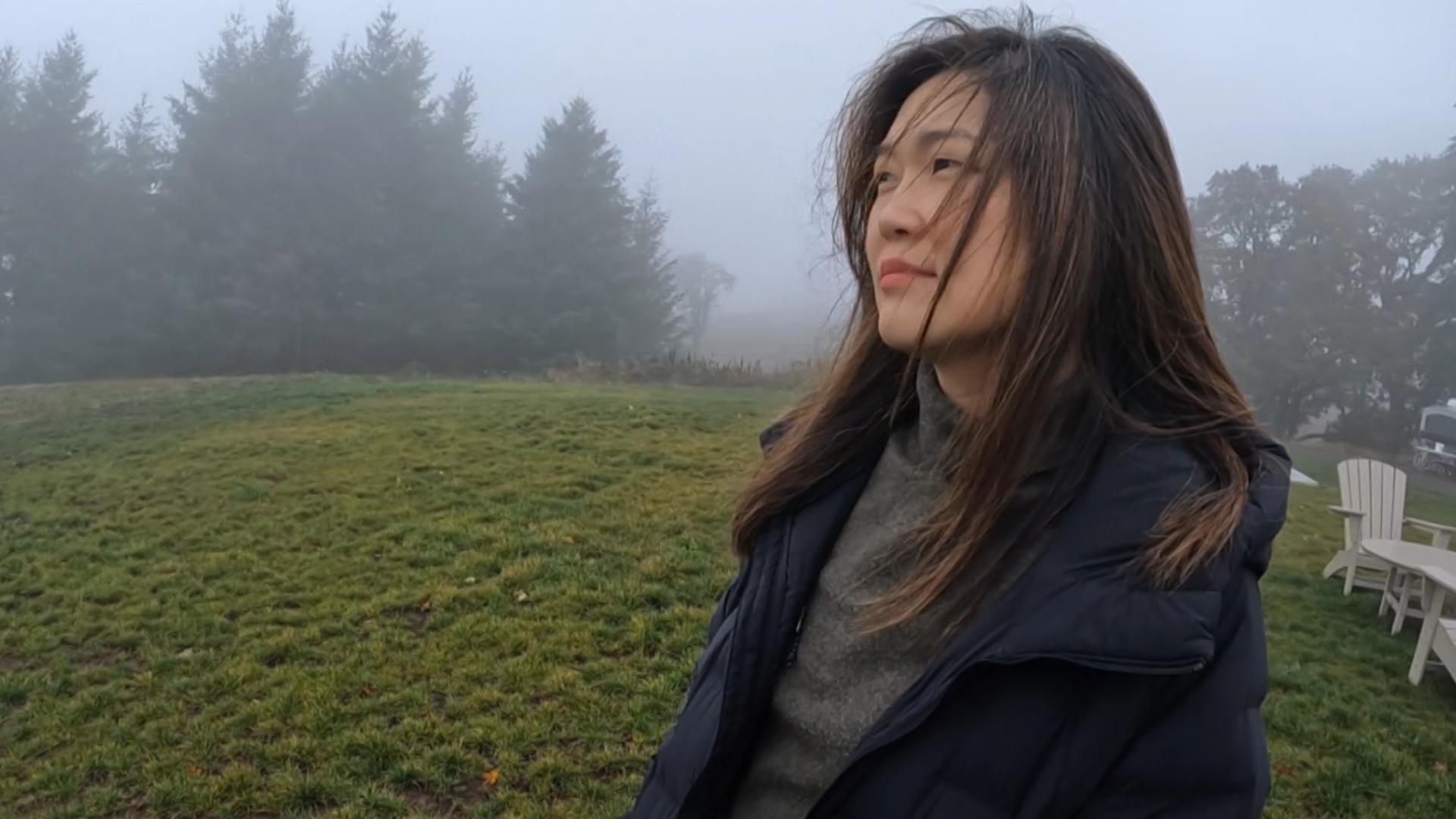OREGON, USA — Before she ran an award-winning winery in the Willamette Valley, Lois Cho was a nurse practitioner. And so, when, in 2017 and 2018, she noticed that she felt different in those November weeks when the daylight began to fade, and the rains set in, she knew something wasn’t right.
Now, after an effort to “escape” to Southern California, enduring a pandemic and returning to Oregon, Cho says she’s accepted that seasonal affective disorder (SAD), a type of depression, is part of her for life. And she’s talking about her experience in the hope of breaking the stigma around mental health, with the goal of letting others who may be suffering in silence know that they’re not alone.
Below are excerpts from our conversation with Lois Cho. They have been lightly edited for brevity and clarity.
Why is it important for you to talk about seasonal affective disorder (SAD)?
Having been a nurse practitioner for 10 years, mental health is something that is really important to me. I didn't realize (SAD) was affecting me until I was in Oregon for a good 3 or 4 years. I realized there was a cycle that would happen right after harvest heading into December or January where I was feeling really heavy. I always describe it as this heaviness on my chest, not wanting to get out of bed in the morning, not being fully present. I cried a lot. But, you know, often times, as a working mom, the show must go on, you just keep doing it. And so, you are silently suffering. I would have a lot of dark thoughts, like 'Maybe it's better for me not to be here.' Those are scary thoughts to have when you have a family and a partner and people that are depending on you.


I am lucky to have a partner who is my strong, rooted tree. I started sharing with him how I was feeling. I started talking to my coworkers and letting them know, 'I'm just really struggling right now.' The more I opened up and talked to people about it, I realized others struggled with it. Often times, you think you have all the solutions yourself and you need to make everything better. But sometimes there's a lot of wisdom outside of yourself.
What treatment or strategies did you try?
There’s the “happy light,” you know, trying to increase the lumen that you get. In the morning, when I prepared lunches (for my kids), I would turn the light on. I would try and have it next to my desk at work. I would exercise regularly. I took Vitamin D3, at high doses throughout the year. I saw a counselor. The counseling helped in some respects, but I realized that it wasn't enough. I ended up taking antidepressants. I don't feel like at the time I really committed to it because I was afraid that it would be something that was more lifelong.
In 2020, you tried to “escape” your depression by leaving Oregon and moving to Southern California. Did that work?
No, because it was the pandemic. As soon as we arrived, it was the first day of lockdown and what we had thought moving to California is that we'd have family support. 'It's going to be sunny; we're going to be out and about all the time. Now, we're on lockdown.' It was a really isolating time. I think, at the time, I really wanted (SAD) to be something that would go away quickly.
What made you decide to move back to Oregon?
We found this property (in the Chehalem Mountains). My husband, Dave, told me, “Honey, you know, what happens when you're in Oregon? Are you sure this is something you want to do?” He was apprehensive about it. But I had done a lot of work throughout the pandemic and meeting with the counselor working through a lot of grief and getting really stable on my medications. There was a turning point during the pandemic where I was jumping into the business as well. And I realized this is something that I really wanted to do.
Since you’ve returned, you’ve been through two winters and are now going into the third. How have they gone?
The first season, I was too busy to even notice that it went great! And I realized that the community that we've created here through the wine industry has really helped carry me through the seasons. We got through it because we're doing harvest together. In December, we have our club party. And then in January, we have this downtime to spend together and spend with the family that we typically don't have. So, this ebb and flow of the wine industry seems to work really well. I'm not alone during harvest anymore; I’m not alone during the winter months.
It's actually a gift to have the seasons — to re-evaluate our family goals, our work goals, to recalibrate and then come back and hit summer again hard.
Are you anxious about what this winter could bring?
100%. Always. But I also have fear and anxiety about what the next 5 or 10 years could bring, what tomorrow could bring. At any point, it could get rough again. But I know that Dave is always there. Yesterday, I said to him: "Thank you for fighting for me. Even when I choose not to fight for myself."


You know, it's going to be rainy for a season, but then those clouds will clear, and the sunny days will come again. So, it was sort of realizing that depression is sort of like the clouds and the rain — sometimes, it might feel a little gloomy but accept it rather than trying to fight it.
It sounds cliché, but fear can only be combated with love. It can only be combated by being surrounded by people that love you and have your best interest in mind, so that you can love yourself as well.
How do you talk to your three young children about your mental health?
I’ve normalized it. I wanted to make sure that I told my kids that it's okay to feel sad. It's okay to talk about it. It's okay to seek help. They may struggle with the same things because they're my children. I want them to have the tools to cope with it, too.
I grew up in a Christian family with a father who was a pastor. I think there's stigma around mental health, in particular in Korean American and Asian American cultures, maybe even church cultures. Either you have to push through and overcome it or hide it and not show it. I needed to get it all out and bring it into the light, air it out.
Depression is very lonely. It seems like you're in a cone of loneliness and nobody understands. The only way out of it is to talk about it.
You can learn more about seasonal defective disorder on the National Institute of Mental Health and Cleveland Clinic pages, or by contacting a medical professional.
If you’re struggling with your mental health, have thoughts of suicide or know someone who is, help is available 24/7 by calling or texting the National Suicide & Crisis Lifeline at 988.

